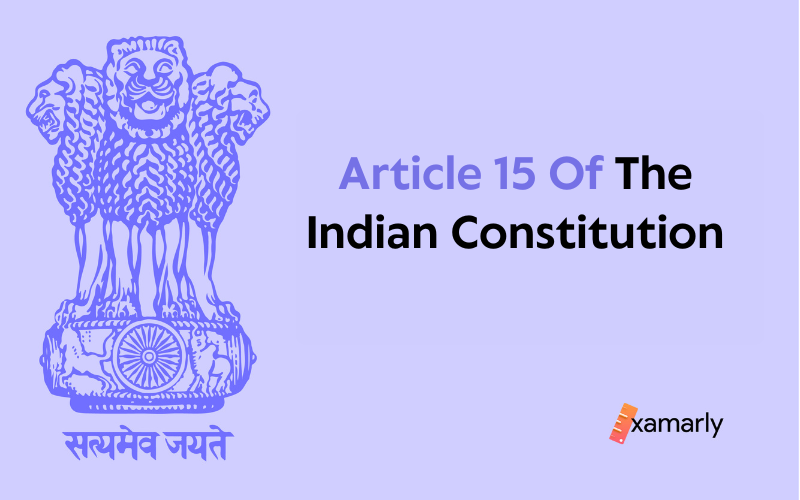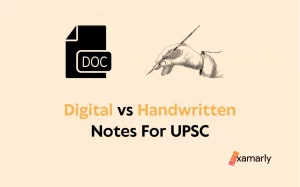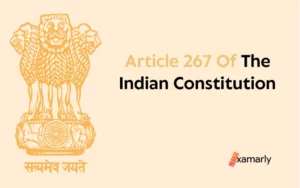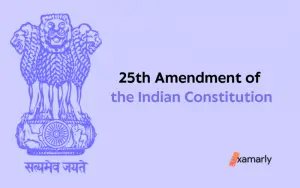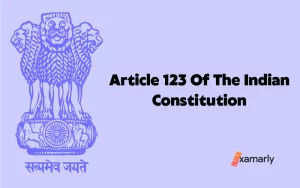Since the Constitution’s enactment, Article 15 has been greatly needed and is still in existence. Article 15 lists six clauses that expressly forbid specific forms of discrimination.
The Indian Constitution’s Article 15 protects its citizens from discrimination in any form, and this article discusses its aspects.
There is no doubt that prejudice may happen in a nation with as many distinct religions, ideologies, dialects, customs, etc. as India has.
The protection of citizens’ rights and interests is, therefore, the goal of Article 15.
As the protector of the oppressed and a barrier against discrimination, Article 15 has enabled Indian society to stand up straight and proudly in the face of extreme discrimination, racism, and rigid caste systems. It will always play a role in preserving India’s unity and equality.
- What Is Article 15 Of The Indian Constitution?
- Scope Of The Word Discrimination
- Clauses Of Article 15
- Clause 1 Of Article 15
- Clause 2 Of Article 15
- Clause 3 Of Article 15
- Clause 4 Of Article 15
- Clause 5 Of Article 15
- Clause 6 Of Article 15
- Special Provision For Women And Children
- Special Provision For the Advancement Of Backward Class As per Article 15
- Is Article 15 Clause 4 A Fundamental Right?
- The Reason Behind The Provision
- How Articles 14, 15, and 16 Of The Indian Constitution Are Interrelated?
- Government Schemes That Work To Implement Article 15
- Consequences/Punishments Of Being Charged For Article 15
- Government Initiatives To Educate School Students About Article 15
- Case Laws
- Champakam Dorai Ranjan vs State Of Madras
- M.R Balaji vs State Of Mysore Of 1962
- 1st Amendment Of The Constitution
- 93rd Amendment
- T.M.Pai Foundation v. State of Karnataka, 2003
- The Government's Viewpoint
- Conclusion
- FAQs
What Is Article 15 Of The Indian Constitution?
The basic premise of Article 15 of the Constitution of India is equality before the law (right to equality) It prohibits discrimination based on sex, religion, caste, and place of birth. It also makes special provisions for women and Schedule castes. In short, this article gives people the right to live a dignified life.
Scope Of The Word Discrimination
Article 15 of the Constitution of India prohibits discrimination. The word discrimination means any unfair or adverse distinction. This includes treatment that is based on disrespect, contempt, or prejudice. There are some exceptions to this rule, however.
Historically, India has experienced discrimination on the grounds of sex, caste, and religion, including untouchability and the division of the upper and lower castes.
Article 15 prohibits discrimination on the following grounds:
- Religion – This refers to the principle that no one should be denied access to any public facility or policy by the government or any other organization on the basis of religion.
- Caste – Caste should not form the basis of discrimination. Caste discrimination is defined as discrimination against members of the scheduled and backward castes. In order to stop atrocities committed by the upper caste people against the lower castes, discrimination based on caste is also outlawed.
- Sex – In no circumstance may a person’s gender serve as a legal justification for discrimination. For instance, discriminating against women, transgender people, etc.
- Place of Birth – The place where someone was born shouldn’t be used as a basis for prejudice towards other citizens.
- Race – Discrimination shouldn’t be based on racial or ethnic origin. For instance, it is unacceptable to treat citizens of Indian or Afghan descent differently.
Clauses Of Article 15
Clause 1 Of Article 15
The State is prohibited from discriminating against any citizen on grounds of religion, race, caste, sex, or place of birth.
Clause 2 Of Article 15
No citizen will be subject to any disability, liability, limitation, or condition regarding
- (a) access to shops, stores, public restaurants, hotels, public parks, and places of public entertainment based solely on their religion, race, caste, sex, or any combination of these;
- (b) the use of wells, tanks, bathing ghats, roads, and places of public resort maintained entirely or partially out of State funds or designated for the use of the general public on the basis of religion, race, caste, sex, or any combination of them.
Clause 3 Of Article 15
The State may make any necessary special provisions for women and children without being restricted by anything in this article.
Clause 4 Of Article 15
The State may make specific provisions for the advancement of any socially and educationally disadvantaged classes of citizens, as well as for the Scheduled Castes and the Scheduled Tribes, notwithstanding anything to the contrary in this Article or in Article 29’s clause (2).
Clause 5 Of Article 15
Nothing in this article or article 19 (1)(g) shall preclude the State from enacting special legislation for the benefit of any socially and educationally disadvantaged sections of citizens, including the Scheduled Castes and the Scheduled Tribes, inasmuch as such legislation relates to their admission to educational institutions, including private educational institutions, whether aided or unassisted by the State, other than minority educational institutions.
Clause 6 Of Article 15
Nothing within this article, subclause (g) of article 19’s clause (1), or article 29’s clause (2) prohibits the State from creating,
- (a) any specific measures for the progress of any economically underprivileged segments of citizens other than the classes indicated in clauses (4) and (5); and
- (b) any special provisions for the advancement of any economically underprivileged sections of citizens, other than the classes indicated in clauses (4) and (5), insofar as such special provisions relate to their admittance to educational institutes, including private educational institutions, whether assisted or unaided by the State, aside from the minority educational institutions referred to in Article 30 (1), which, in the event of a reservation, would be in addition to the current reservations and limited to a maximum of 10% of the total seats in each group.
Special Provision For Women And Children
The state has the power to enact specific legislation for women and children under Article 15 (3). If governments pass any legislation that can advance women, it will be deemed constitutional under Article 15 (3) of the Constitution given the social and economic disadvantages faced by women in India.
Special Provision For the Advancement Of Backward Class As per Article 15
Article 15 of the Constitution provides for special provisions for the advancement of the backward classes in various fields. These special provisions were introduced to address the needs of the underprivileged sections of society. These provisions are also based on the principle of equality.
Is Article 15 Clause 4 A Fundamental Right?
- Article 15(4) is a part of the Constitution’s Part III. It deals with fundamental rights.
- A few of Part III’s clauses are essentially descriptive, while others deal with how basic rights may affect current or future laws.
- There are conditions for the implementation of fundamental rights. This variety of requirements is what makes Article 15(4)’s legality still up for debate. The five-article “Right to Equality,” which spans Articles 14 to 18, includes this one.
The Reason Behind The Provision
The basic principle of equality in the Constitution of India is upheld through Article 15 in India. The article provides special provisions for women and children, acknowledging their physical structure and maternal functions. These provisions include special maternity relief, employment opportunities for women, and education. In addition, article 15 allows the state to establish educational institutions exclusively for women. In other words, the law allows reservations for women in colleges and universities.
How Articles 14, 15, and 16 Of The Indian Constitution Are Interrelated?
The Constitutional Right to Equality is outlined in Articles 14, 15, and 16. Articles 15 and 16 implement Article 14 and contain provisions for equality.
Reservation of seats in schools and colleges for children of SEBC, SC, and ST, as well as for girl children, are some specific provisions under Articles 15 (3) and (4) intended to ensure that these sections rise up to become equal to the high parts of society. This is done for the upliftment of the various sectors of society.
The following articles are related to Indian politics and can help candidates prepare for the UPSC exam:
| Article 14 Of The Indian Constitution | Article 16 Of The Indian Constitution |
| Article 53 Of The Indian Constitution | Article 21 Of The Indian Constitution |
Government Schemes That Work To Implement Article 15
Following are the acts or schemes that are being worked upon by the government of India to implement Article 15:
- According to the Scheduled Caste and Scheduled Tribes (Prevention of Atrocities) Act of 1989, no person from a SC or ST group may be subjected to discrimination or violence simply because they fall under one of those categories.
- The Hindu Succession Act of 1956 made sure that the prejudice against women—who previously only had a restricted owner status—was eliminated and that they received the same rights and authority over their property as men did under Hindu Law.
- The Caste Disabilities Removal Act of 1850 was recently abolished by the Central government. It was intended to ensure that there was no stronger emphasis on a person’s caste. The government decided to do this because they thought the Act was no longer necessary.
Consequences/Punishments Of Being Charged For Article 15
A business, a person, a segment of society, or a group of people may be held accountable for violating the Act’s provisions and thus can be charged as follows:
- A person who discriminates against Scheduled Castes and Scheduled Tribes, may be sentenced to jail or subject to a fine under the SC and ST (Prevention of Atrocities) Act, 1989. Because the offenses are not cognizable, the judiciary has discretion over whether to grant bail to the perpetrator.
- Additionally, courts have the power to invalidate societal norms or practices that may be applied to particular groups of individuals.
Government Initiatives To Educate School Students About Article 15
- A 10-month-long program was introduced in all the Delhi schools in the academic session 2019-2020 on Constitutional values.
- Common Minimum Programme for Value Education’ was implemented in 2019-20 across India’s entire schooling system.
- When the then-government ordered schools and other institutions to observe November 26 as Constitution Day, the debate over how to teach the Constitution gained traction.
- In order to instill in young minds the importance of the fundamental principles of the Indian Constitution, subjects like civics and legal education have also long been included in the educational curriculum.
- Illustration of a school in Bangalore that teaches the Constitution: Inventure Academy on Whitefield-Sarjapur Road has developed an eight-year curriculum that instructs students on their rights and responsibilities under the Constitution. Children in Class 5 and up are taught this material every year in the first term, and case studies are used to help them comprehend how some Constitutional provisions are broken and what they can do to ensure they are responsible citizens.
Case Laws
Champakam Dorai Ranjan vs State Of Madras
According to the Supreme Court of India, the Madras state’s decision to reserve some seats for the unprivileged classes of society was a violation of article 15 of the constitution in this instance.
M.R Balaji vs State Of Mysore Of 1962
The case involves the constitutional validity of a state’s reservation order enacted in 1962. This order classified the backward classes into the less backward and more backward categories of people, reserving 68% of seats for socially and educationally backward people and 32% for merit pool students. This state’s reservation order was challenged by 23 petitioners in the Supreme Court.
1st Amendment Of The Constitution
According to the 1st amendment, the state is permitted to make any reservations for socially and educationally underprivileged groups in society, and doing so would not be viewed as violating article 15 of the constitution.
Check out the linked article to learn about the 1st Amendment Of The Indian Constitution
93rd Amendment
The 93rd Amendment Act of 2005 added clause (5) to Article 15 of the Indian Constitution, allowing the government to make any special provisions for the advancement of any backward classes of people, or scheduled castes, or scheduled tribes, with regard to their enrollment in educational institutions. These provisions would include private academic institutions, whether assisted or unassisted by the government, but besides minority academic institutions.
Additionally, the amendment aims to enhance access to high-quality education for students from Scheduled Castes and Scheduled Tribes as well as those from socially and educationally disadvantaged groups of individuals, notably in professional education.
T.M.Pai Foundation v. State of Karnataka, 2003
In relation to Article 15, the court determined that the state has discretionary powers.
The Government’s Viewpoint
The act, in the opinion of Prime Minister Narendra Modi, was a significant moment in the history of the country and a strong intervention to guarantee justice for all social groups.
In his justification for the 10% quota, Mr. Arun Jaitley, former minister of finance and corporate affairs, stated that two people cannot be treated similarly if they come from different backgrounds due to their birth or economic situations. He argued that inequalities cannot be treated equitably.
According to Arun Jaitley, the Supreme Court’s 50% reservation cap was applicable only to caste-based reservations. The Economically Weaker Section reservation remains unaffected.
Conclusion
The right to live in an inclusive society is one of the rights guaranteed by Article 15 of the Indian Constitution. Additionally, it offers protection from social injustice and exploitation for society’s weaker groups. The constitution also encourages the Indian people to view one another as brothers. Additionally, it safeguards the worth of women. In totality, Article 15 is the article that safeguards the rights of all and protects their dignity.
The constitution provided for favorable differentiation or positive discrimination in favour of women and children, as is clear from Articles 15(3) and (4).
FAQs
What Is Article 15(1)?
According to Article 15(1), no citizen of India shall be subjected to discrimination on grounds mainly religion, race, caste, gender, place of birth, or any of them.


